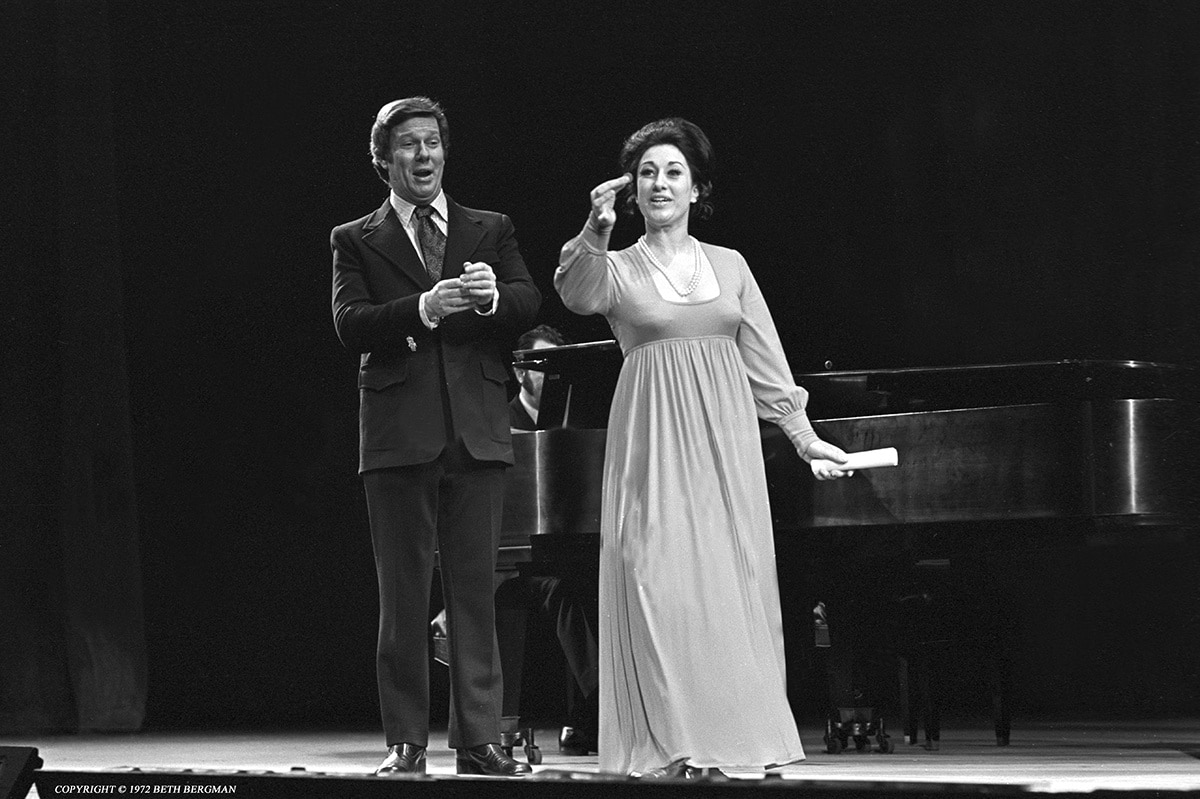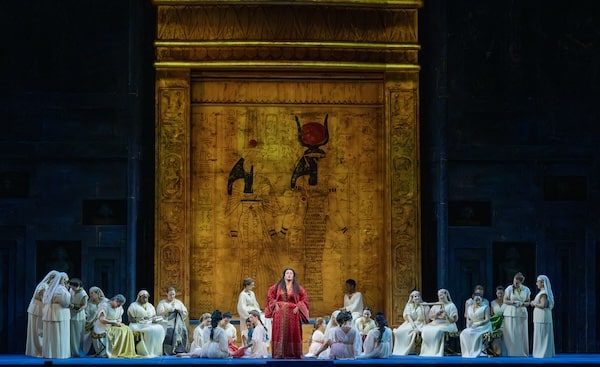What’s the point of an Emeritus?
UncategorizedLa Scala this week gave the title to Myung Whun Chung.
The Netherlands philharmonic awarded it to the German Hartmut Haenchen.
Apart from signalling advanced age, what is the point of these titles?

La Scala this week gave the title to Myung Whun Chung.
The Netherlands philharmonic awarded it to the German Hartmut Haenchen.
Apart from signalling advanced age, what is the point of these titles?
There were protests during Christmas mass at Freiburg…

From the Berliner Zeitung: …How dangerous real music…

The soprano Loretta Di Franco Pinto, who sang…

A tenor who was audibly below par, an…

Session expired
Please log in again. The login page will open in a new tab. After logging in you can close it and return to this page.
Surely that it’s an agreement that said conductor comes to conduct 1 or 2 weeks a year?
To reward lifetime achievement. It is a good idea.
Showing respect maybe?
Honoring someone who has done a lot of valuable work for an institution….What´s the point of this post?
Meaning you are old and we like you but not enough to make you our Music Director … a back handed compliment of sorts
Apart from creating controversy, what’s the point of this blog?
‘Emeritus’ (from the Latin verb ’emerior’) just means ‘retired; no longer in service.’ In universities, where the term is most often used (Professor Emeritus), it means honourable retirement with continued status as a member of the institution. You keep your library card and your e-mail address; you may have an office; you may teach a course now and then; you can serve on committees, etc. I suspect the title is being used in a similar way in the case of the conductors mentioned, at least in the sense that the orchestras in question want a continued association with them. The difference is that the title is routinely granted to professors who manage to retire without disgracing themselves in some spectacular way. There’s nothing special or unusual about it, and it carries no implication of outstanding ‘merit’ (a word etymologically unrelated to ’emerior’). So one could argue that ‘Conductor Emeritus’ pushes the term ’emeritus’ beyond its proper meaning. But in the larger scheme of things, that’s not a very big problem.
What’s the point of any titles?
To signify a good relationship (of course)
In the old joke: the ‘e’ is Latin for out, and the ‘meritus’ means… you deserve to be out.
The answer is: it depends.
In the case of La Scala, the greatest opera theater in the world, it is to honor an exceptional conductor. How fitting that he, an “Oriental”, receives the title while the Italian maestrino who labeled him with a Trump-style racial nickname is, for all intent and purposes, banned by the same institution. I’d go as far as calling it divine justice, for those of us who are spiritually inclined.
In the case of a once famous US orchestra, the point is about adding “for Life” to the title, to sprinkle veiled mockery and set the seal of victory of the healthy wing of the organization against a pathetic dictator.
By the way, speaking of a certain orchestra, what’s with this entire conspiracy now to keep certain great musicians out of a most crucial principal audition? Come clean now!
The Honorary Oscar of Classical Music?
Well one point of the title is that conveys “gone — but not fired.” Translation: welcomed back.
Chung is not emeritus of Teatro alla Scala. He is emeritus of Filarmonica della Scala.
In academia the honorific Emeritus is awarded to professors for outstanding achievement in teaching, research or service to the university.
No it isn’t. ‘Emeritus’ has nothing whatever to do with ‘merit’ or ‘outstanding achievement. It just means ‘retired [but still connected].’ Virtually everyone who makes it to retirement gets the title.
Exactly. “Emeritus” just means that you’ve retired after a good, long run. It recognizes that you’ve had a successful relationship with that school or organization. No one actually has to grant it to you.
Perhaps your institution is more generous with the Emeritus status, but at the retirement luncheon for retiring university faculty my husband and other honorees were recognized for achievement. He wasn’t expecting it because it was voted by secret ballot. Further research indicates it varies by country and institution, so all responses are accurate.
I suppose it gives you yet one more thing to complain about that really isn’t any kind of a deal at all.
Showing appreciation, gratitude and respect, trying to honor a long working relationship?
Your Latin lessons were a long time ago, weren’t they?
Apart from NL promoting a failed thesis, and staking out his little patch of skin to suck blood from the backs of artists, what is the point of this blog?
To maintain a relationship with someone with whom there is mutual respect. Haitink maintained such relationships with Boston and Chicago, I believe.
Leonard Bernstein became music director emeritus of the NYPO immediately after he resigned as music director ,age 50. he conducted them every season until his death and made many great recordings.
Tonight Hartmut Haenchen will be celebrated in the Concertgebouw Amsterdam with the title Honorary Conductor. It’s as simple and well-earned as that! Marvelous programme. See the site.